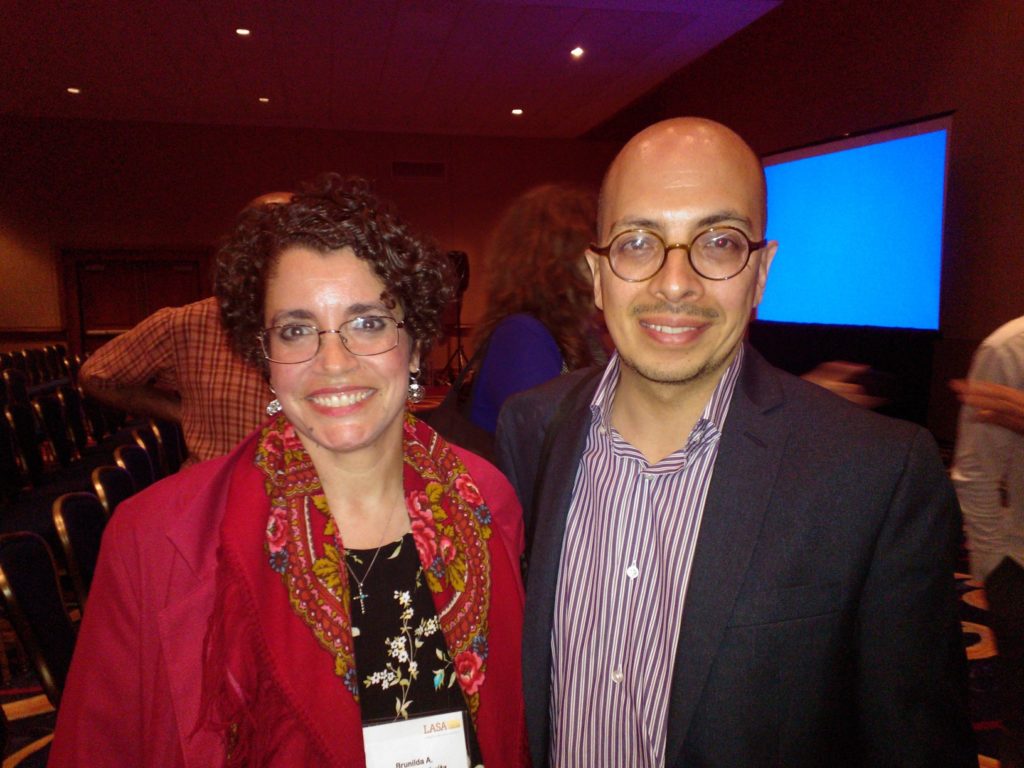So, the end of spring brings out the big academic conferences like mushrooms during a damp April rain. In a bit of symbolic justice, the District of Columbia is experiencing its first heat wave with the arrival of the Latin American Studies Association Congress – in honor of what is possibly the largest gathering of tropical Latino/Latin American intellectuals in the United States. I have come to catch up on Latino studies, make some contacts with Cubanists, and get ready to pop out a book proposal by the end of the summer.
First thing about DC Big Academic Conferences – everybody comes. You can feel the nervous sweat of the ABDs as they try to figure out what topics will lead to The Interview and The Job. There are people like me, who need to figure out what to do with our academic life. Then there are the tenured, who see this as a chance to hear one or two new things and have drinks with buddies they have known for decades.
The second thing about DC Big Academic Conferences – they do not come cheap. Parking at the conference hotel for the day is $32. I chose this the second day because I want to go to the evening reception, which starts at 10pm. (Insert your favorite quizzical emoticon here.) 10pm, which a very Latino time for a party, is rough for a middle aged academic who had to wake up before 6am to get here on time. Otherwise, it is $14 for parking and metro, or $199 for the conference hotel for the night.
Then, there is the need to dress in layers. It is 90 degrees Fahrenheit outside, but less than 70 degrees inside. Layers are critical, because you are not spending $30 for lunch in the hotel when you are (not) on a per diem and you can get lunch for less than $11 if you just walk right outside of the hotel. The ability to survive the change in temperature is vital to keeping costs under control.
Most striking about the Latin American Studies Association national congress, as opposed to the Association for Slavic, East European and Eurasian Studies national conference — coming up in Boston this November — woo whoo! — is the fact that here I see me. One of the charms of Soviet studies is the ability to keep that vaunted critical personal distance from the object of study. No such pretense here. I have attended a couple of Puerto Rican panels. The first was on Carlos Fuentes – yeah, I know, not Boricua, but the panel was fielded by UPR Rio Piedras folk. Boricuas with Ph. D.s still strike me as moderately Martian. The other panel I attended was on development policies on the island during the first half of the twentieth century. That one was weird. One of the papers mentioned the activities at Ramey Base before it was decommissioned. The other panels I attended were on Cuban studies.
Except for the Friday 5pm panel. That one, I have to say, was a special treat. I met Jorge Volpi in person. Jorge Volpi is a Mexican writer who is part of this post-Macondo group called the “Crack Movement.” He has written, and writes, a lot. He writes a lot in that post-modern ironic way of writing, and he keeps a blog. In Spanish. Yeah, I know, hegemonic English is not the way to access the beauty of this language. Fortunately for those Spanish impaired, a lot of his works have already come out in English translation. You can look in your local library for In Search of Klingsor, Season of Ash, and In Spite of the Dark Silence.
I have to say one of the things that really really frustrates me after attending these conferences is the way a lot of these scholars lead a life ready to drop everything, grab that passport and go. Maybe it comes from being a Sovietologist, and knowing that Russia as a scholar is not the most user friendly place in the universe, and that getting the blasted visa is but the beginning of your research troubles, but still, to bounce around like that without worrying about you home security system or how to deal with your syllabus for next semester. Also, this year I am really feeling that sense of four heavy undergraduate courses eating up all your time.
And I did not buy one single book. Now that one is one for the records. A great conference, all in all.

